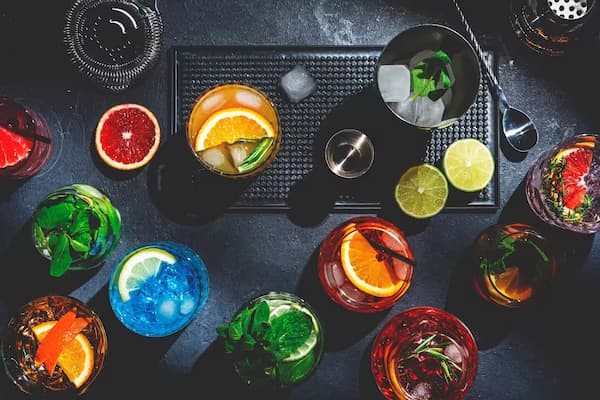Egg
About Egg
Egg yolks, on the other hand, are less commonly used but play a crucial role in creating rich, silky textures in cocktails like the classic Flip. Yolks impart a depth of flavor and smoothness to the drink, often contributing to a luxurious mouthfeel. Whole eggs are also utilized in certain recipes, combining the benefits of both the white and the yolk to create a cocktail that is both creamy and frothy. It's important to note that when using eggs in cocktails, freshness and safety are paramount. Using fresh, refrigerated eggs and employing safe handling techniques can minimize the risk of salmonella and other foodborne illnesses. Additionally, pasteurized eggs or egg products can be used as safer alternatives without compromising the texture and flavor of the cocktail.
Q&A
When did eggs start being used in cocktails, and what is their history in mixology?
Eggs have been a key ingredient in cocktails since the colonial era, particularly in the 18th and 19th centuries. Initially, they were used in punches and flips, traditional drinks that combined spirits with sugar, spices, and sometimes dairy products. The practice of using egg whites to create frothy textures in cocktails gained popularity in the early 20th century with the advent of sours and fizzes. The introduction of the Boston Shaker in the late 19th century, which made it easier to vigorously shake ingredients, also contributed to the widespread use of eggs in cocktails. These developments marked eggs as a critical ingredient for texture and taste in the evolving cocktail culture.
What roles do egg whites and yolks play in cocktails?
In cocktails, egg whites are primarily used to create a frothy, creamy top when shaken, offering a distinctive texture and appearance. This frothiness is due to the protein content in whites, which unravels and traps air bubbles during shaking. Egg yolks, less commonly used, are valued for their richness and ability to provide a silky, smooth texture to drinks, enhancing the overall mouthfeel. Yolks impart a depth of flavor and luxuriousness, making them perfect for richer, dessert-style cocktails like the Flip. The choice between using the white, yolk, or whole egg depends on the desired texture and flavor profile of the cocktail.
How do you safely incorporate eggs into cocktails?
To safely incorporate eggs into cocktails, start by using fresh, refrigerated eggs to minimize the risk of salmonella. It's crucial to handle eggs cleanly, washing your hands and any surfaces the eggs come into contact with. For an added layer of safety, consider using pasteurized eggs or egg products, which are heat-treated to kill bacteria without cooking the egg, preserving their texture and flavor for cocktails. When separating eggs, do it cleanly and, if possible, in a separate container before adding to your cocktail mix to ensure no shell fragments enter your drink. Vigorous shaking is essential for fully incorporating the egg into the cocktail, creating the desired frothy or creamy texture.
Are there any alternatives to using whole eggs in cocktails for those with dietary restrictions?
For individuals with dietary restrictions or preferences that prevent the use of whole eggs, several alternatives exist. Aquafaba, the liquid from canned chickpeas, is a popular vegan substitute that mimics the frothing properties of egg whites. About 2 tablespoons of aquafaba can replace one egg white. For the richness of egg yolks, some bartenders use coconut cream or silken tofu to achieve a similar texture. These substitutes can be used in most cocktail recipes requiring eggs, providing a way to enjoy similar textures and complexities without using actual eggs.
Can eggs be used in non-alcoholic cocktails, and if so, how?
Absolutely, eggs can be incorporated into non-alcoholic cocktails (mocktails) to add the same richness, texture, and visual appeal they provide in alcoholic drinks. For egg whites, shaking them with non-alcoholic ingredients like citrus juices, sugar syrups, and cream can create a frothy, inviting top layer perfect for sours and fizzes. Whole eggs can be used in non-alcoholic flips, mixed with dairy or dairy alternatives, and flavored syrups to create a rich, creamy drink. The key is vigorous shaking to emulsify the ingredients thoroughly and ensure a smooth, appealing texture in the final mocktail.
Ingredients like Egg
Other Kitchen cupboards
How it works
Easily create your bar from the ingredients you have at home, and we'll show you what you can make with the ingredients you have to hand.
Once you've added this ingredient head to your My bar page and fill up everything else you have.
We'll also show you cocktails that can make by substituting what you have for one of the ingredients you don't, riffing on the original. Now go forth and create something delicious!












































